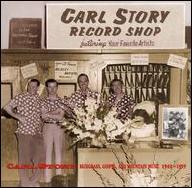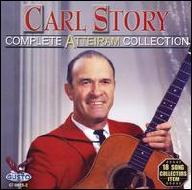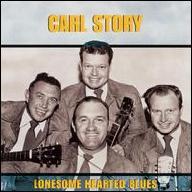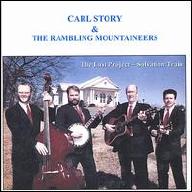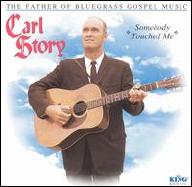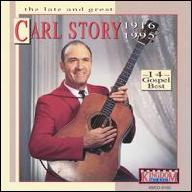Following his discharge, Story reassembled the Rambling Mountaineers with Jack and Curley Shelton, Hoke Jenkins, and Claude Boone. The band's membership changed over the years, and many members, such as Tater Tate and Red Rector, went on to become important bluegrass figures. Story and his group began recording both secular and gospel songs for the Mercury label in 1947, and remained with the label until 1952. He moved to Columbia the following year and recorded over a dozen singles. The pure bluegrass phase of his career, merging the "high lonesome" Monroe sound with gospel harmony vocals and skilled picking from Story and his sidemen, began with the band's signing to Starday in the late '50s. Over some ten albums between then and the early '70s, Story tended almost exclusively toward gospel. Such albums as 1963's Mighty Close to Heaven featured upbeat material (You Don't Love God [If You Don't Love Your Neighbor]) mixed with numbers that employed the poetic qualities of bluegrass songwriting in the service of intense professions of faith (the title track, in which Story sings that he came "mighty close to heaven with my tears"). Story and his band became fixtures on the bluegrass festival circuit, and he toured consistently even after he entered semi-retirement in Greer, SC, outside of Greenville, where he worked as a disc jockey. His funeral in 1995 was attended by bluegrass royalty, from Bill Monroe on down. ~ Sandra Brennan & James Manheim, Rovi
Carl Story
from Lenoir, NC
May 29, 1916 - March 30, 1995 (age 78)
Biography
Guitarist, fiddler, and vocalist Carl Story became known as "The Father of Bluegrass Gospel Music" over his decades-long career. Though less well known than Bill Monroe, Ralph Stanley, and other bluegrass pioneers, he was present as the genre took shape and was for many years a highly influential figure whose band served as a training ground for many younger musicians. Story was born to musically inclined parents who played for square dances, and he learned both the fiddle and guitar when he was young. String band music snared his attention when he was in his teens, and he was active on radio in Lynchburg, VA, in the early '30s. Around 1935, Story and teenage banjoist Johnnie Whisnant moved to Spartanburg, SC, to play in a band called the Lonesome Mountaineers, which eventually spawned the Rambling Mountaineers. The band performed on radio around the South until Story left to become a fiddler for Bill Monroe his Blue Grass Boys in 1942, replacing fiddler Howdy Forrester after Forrester was drafted. In 1943, Story, too, was drafted into the U.S. Navy.
Top Tracks
Albums
Videos
Close


